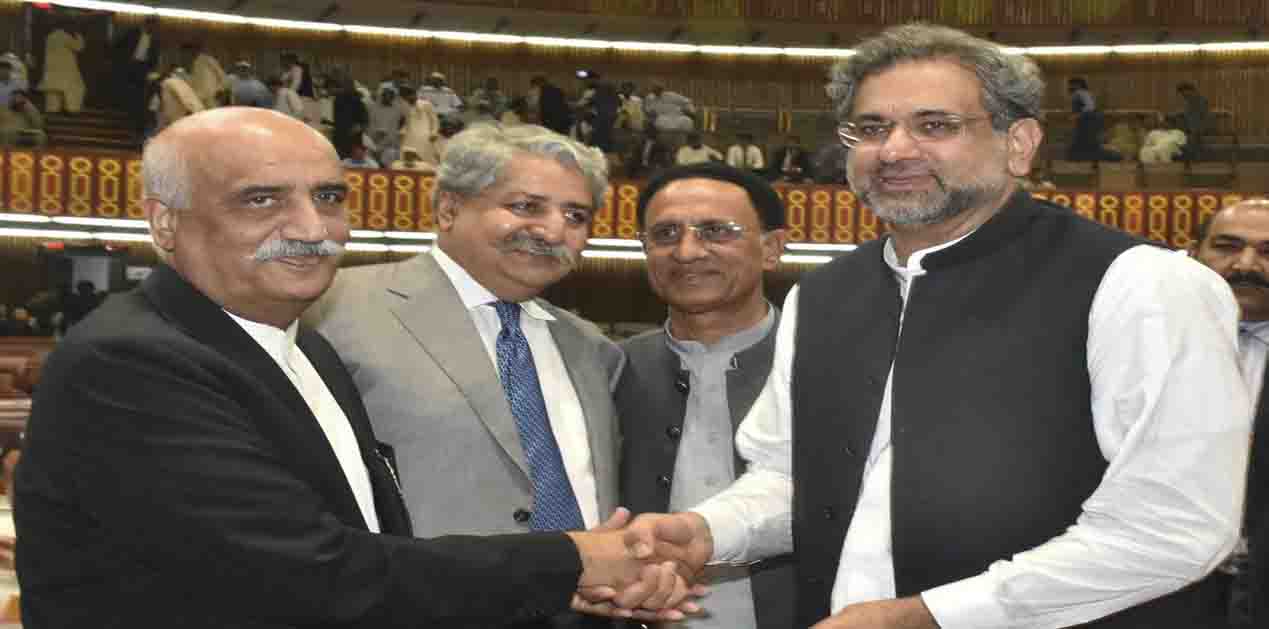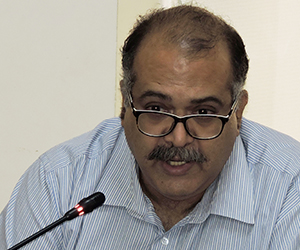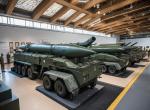In its seventy years existence, Pakistan has been a virtual laboratory of political science. They have tried all possible forms of democracy – parliamentary, presidential, basic, ‘real’, controlled, stunted, non-party, you name it – and have devised some time-tested ways – assassinations, military coups, palace intrigues – and some innovative methods – judicial murder, dismissal by President, conviction on charges of contempt of court – to remove elected Prime Ministers from office. But so far, not a single Prime Minister has yet been voted out of office in a free and fair election. The disqualification of former Prime Minister Nawaz Sharif by Supreme Court of Pakistan on the grounds that he isn't truthful, trustworthy, honest, sagacious, non-profligate because he didn’t declare his receivable income (which he claims he never received) has once again earned the dubious honour of removing an elected Prime Minister from office through a ruling that would be inconceivable, even scandalous, in any normal country. It is almost as if the judges had pre-determined Nawaz Sharif fate and discovered the pretext for his sacking as an after-thought.
The summary disqualification of Nawaz Sharif by the Supreme Court has of course assured his place in Pakistan’s history by becoming the first PM to be sacked thrice before he could complete his term in office. Pakistan also earned the dubious distinction history of becoming the only nuclear weapon armed country in the world that had no government for over 100 hours after Nawaz Sharif’s unceremonious ouster from the office of Prime Minister. That this fact didn’t seem to bother anyone either in Pakistan or in rest of the world only proves how little the civilian elected governments matter in that country when it comes to questions of war and peace, foreign and security policies, and all other issues of critical importance.
With elected governments having been reduced to glorified municipalities – the military establishment, which was already calling the shots on foreign and security policies, has steadily encroached into other spheres like law and order and even economic policies leaving the civilians in charge of only municipal functions – it really makes no difference in the larger scheme of things on who replaces Nawaz Sharif. After all, if an ostensibly popular and powerful Prime Minister like Nawaz Sharif could be sacked in what is clearly a summary judgment by a Kangaroo court then it is probably a waste of time to go into long-winded analysis of who will don the mantle of the Prime Minister of Pakistan. Be that as it may, for now, a party loyalist and political light-weight Shahid Khaqan Abbasi has been elected Prime Minister. But he is supposed to be a bench warmer for Nawaz Sharif’s younger brother, Shahbaz Sharif, who will have to relinquish the post of Chief Minister of Punjab, get elected as a Member of the National Assembly and then replace Abbasi. This process will take anything from six to eight weeks.
But if a week is a long time in politics, then two months is an eternity. Already there is some talk that Shahbaz will stay back in Lahore, in charge of the party’s bastion – Punjab. There are reasons for this rethink. For one, at this critical juncture, it could prove to be a monumental political blunder to pull Shahbaz out of Lahore. He has a tight control over the party machinery and the patronage networks that the Sharifs have built over the last three decades. As Prime Minister, he will not be able to devote his full attention to Punjab, which in turn could cause serious problems going into the General Elections next year. For another, not only is Shahbaz a formidable political organiser and operator, he also has the reputation of being an efficient administrator. His record of getting high profile projects completed in time is enviable. The ruling Pakistan Muslim League-Nawaz (PML-N) needs to get some of their signature projects – infrastructure, power, civic amenities etc. – up and running before the elections so that these can be showcased to the electorate. Finally, like in everything else in Pakistan, there is also a conspiracy angle.
For some time now, rumours – an astute Pakistani commentator calls them ‘premature facts’ – have been swirling around of a growing rift in the Sharif family, not just between Nawaz and Shahbaz, but even more between the Gen Next. Shahbaz knows that notwithstanding all his accomplishments and achievements, without Nawaz Sharif at his back, he will find it difficult, if not impossible, to keep the Muslim League vote bank together. The Muslim League vote is basically Nawaz Sharif’s even though Shahbaz plays a critical role in marshalling it. Of course, if Nawaz Sharif and his heir apparent and daughter, Maryam, get convicted, then Shahbaz can easily claim the mantle of the party. But until that happens, Nawaz wouldn’t like to put Shahbaz in charge of everything by making him Prime Minister and his son, Hamza, the Chief Minister of Punjab. Hence, Nawaz would prefer that Shahbaz stay in Lahore while he continues to call the shots both in the centre as well as in Lahore as the supreme leader of the party. In a way, Nawaz Sharif will now try to run the party like Altaf Husain used to run the Muttahida Quami Movement (MQM), and run the government like the Gandhi family used to with Manmohan Singh as Prime Minister. The sustainability of this arrangement will however depend in large measure on a number of variables, including whether or not Nawaz Sharif and his immediate family members get convicted, whether or not Nawaz Sharif has been disqualified from holding any public or even political office (legally, he is ineligible to continue even as the chief of his own party), whether or not Shahbaz (assuming he survives the purge of the Sharifs) continues to treat Nawaz as the leader, and whether or not there are desertions from the party of people who consider continued association as a losing proposition. Punjab, which is the base of the Sharifs, is notorious for switching political loyalties when push comes to shove, as is likely to happen against the Sharifs.
Predicting the political demise of any politician is always fraught with risk. But the manner in which Nawaz Sharif has been politically guillotined by the judiciary, coupled with the forces arraigned against him, makes it very unlikely that he will be able to, much less allowed to, play a political role even from behind the scenes. As the criminal case that has now been referred by the Supreme Court to an Accountability court proceeds, the noose around Nawaz’s neck will tighten. Any hope that the Sharifs have that the case can be dragged on endlessly has already been dashed by the Supreme Court which has mandated that the case be completed within six months (well before the next elections). What is more, a Supreme Court judge will monitor the proceedings, which is short hand for directing the proceedings. With five Supreme Court judges unanimously ruling that there is sufficient evidence to prosecute Nawaz Sharif and family, which subordinate judiciary judge will have the courage to go against the direction that the superior court judges have already set, even less so when two of the five judges are future chief justices of the Supreme Court. Add to this the failure of Nawaz Sharif to produce documentary evidence that will prove his innocence, and the case seems a slam dunk for the prosecution. As if this was not enough, there is sufficient circumstantial evidence that the military establishment has played a big role in ensuring that Nawaz Sharif is fixed. Much of the evidence collected by the Joint Investigation Team wouldn’t be possible without the active assistance of the military.
All this doesn’t mean that Nawaz Sharif has lost popular support. Quite to the contrary, his supporters are angry and there are many others who feel he has been singled out and have developed a sympathy for him. But the fact that Nawaz Sharif remains popular and his voters feel he has been done down isn't going to be enough to save him. If anything, this is precisely the reason why he will have to be finished – Zulfikar Ali Bhutto’s popularity became the reason for his judicial murder by the usurper, Gen. Zia ul Haq. The grapevine in Islamabad is that Nawaz Sharif who was planning to drum up support in Punjab by traveling by road from Islamabad to Lahore, has been advised (or even warned) against any such political roadshow, lest it prepones the fate that has been reserved for him.
Once Nawaz is fixed, his brother Shahbaz, who has always been ready to acquiesce to the diktats of the military and has always advocated playing a subordinate role to the military, might become acceptable to the ‘establishment’ provided he is ready to play the proverbial Aurangzeb to Nawaz Sharif’s Dara Shikoh. Of course, if he sticks with his brother, then Shahbaz too could be ensnared, either in the corruption cases lodged against Nawaz Sharif, or even in something more drastic – the infamous Model Town firing case in which 17 people were killed in police firing.
The game plan, however, isn't just to fix the Sharif family, but also dismantle the formidable party machinery and patronage network built by the Sharif clan over the last three decades. This will require engineering defections and desertions from the party, which isn't such a tall task in a province like Punjab which is steeped in obsequiousness, provided of course the ‘establishment’ makes its preference and dislike clear. If a tightly controlled party with a cult following like MQM could be broken into three factions, breaking a party like PML-N and doing an Altaf Husain on Nawaz Sharif is kid’s play for the establishment. A fragmented polity with no strong, independent and popular political leader will make the job of the ‘establishment’ so much easier to get things done the way they want.
While the goose of the Sharifs seems all set to be cooked, it isn't quite clear if the establishment is ready to risk a maverick and megalomaniac like Imran Khan with the Prime Ministership. He has served as a useful idiot against the Sharifs, but because he is too much of an idiot, he also spooks the military. His popularity, as well as flaky ideas on governance and foreign policy, could become a headache for the establishment. It is therefore quite possible that Imran too could fall victim to the controversial constitutional provision that was so cavalierly used against Nawaz Sharif. There is already a case that is being heard against him for not disclosing an off shore company, precisely the grounds on which Nawaz was disqualified. Then there is the recent scandal in which a young female member of parliament has accused Imran Khan of sexual harassment, which if proved will lead to Imran Khan’s disqualification on grounds of moral turpitude. Imran Khan in any case has a pretty unsavoury reputation for womanising and the latest scandal could come handy in ending his politics.
But if both the Sharifs and Imran Khan get disqualified from holding public office, it will create a huge vacuum in politics. This vacuum will get worse also because of the floodgates that have been opened by the Supreme Court by invoking Article 62 & 63 of the constitution to axe politicians. Many political observers in Pakistan have noted that while in the past, the infamous Article 58 (2) (b), which gave the president the power to dismiss an elected government, was used to sack four government's, now the same power to sack government's and politicians will be wielded by the judiciary (with the nod of the ‘establishment’) under Article 62 & 63. Clearly, by arrogating to itself the right to break governments, the judiciary has inserted itself in the political sphere as a power broker and player – Nawaz Sharif is now the second Prime Minister after Yusuf Raza Gilani, who has been shown the door by the judiciary.
While the civilian politicians managed to strike down Article 58 (2) (b), it will be difficult, nay impossible, to even fiddle with, much less strike out, Articles 63 & 63 because the most contentious clause (Article 63 (1) (f)) is mandated by Islamic jurisprudence. The Islamist parties are already threatening to go on the warpath if there is any attempt to tinker with these two articles of the constitution. In a sense, these two articles are quite like the blasphemy law, which everyone knows is obnoxious but no one is able to water down or even touch. And while the politicians were able to grab the president’s position, there is nothing they can do to stack the judiciary with apolitical judges because the Pakistani judiciary is a self-perpetuating mafia, quite out of the control of the elected politicians. Simply put, coups in Pakistan will henceforth not be carried out by soldiers wielding guns but by judges wielding gavels.
Pakistani politics, for whatever it is worth, over the next few weeks and months appears to be heading for a big shakedown, even a possible meltdown.This political unravelling, instead of strengthening the hands of the ‘establishment’, could end up severely destabilising the country, in part because the vacuum being created will only fragment politics instead of consolidating politics. Worse, with mainstream politicians being sucked out of the system, this vacuum could end up being filled by parties and politicians with extremely narrow ethnic, religious and sectarian agendas and very limited appeal, something that will only make the current abysmal state of governance even more dysfunctional.
Image Source: http://www.spokesman.com/stories/2017/aug/01/shahid-abbasi-elected-as-pakistans-prime-minister/










Post new comment